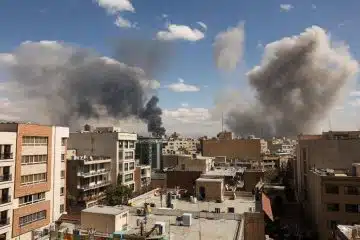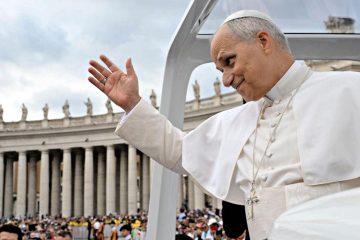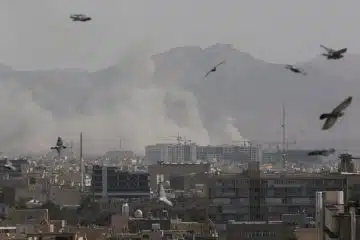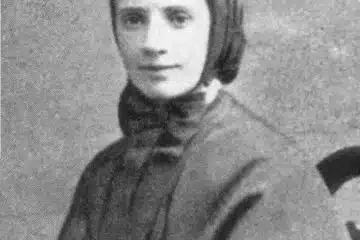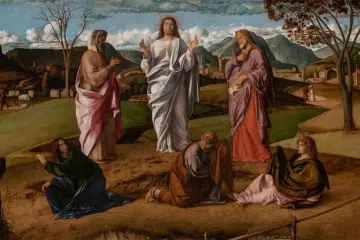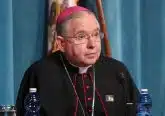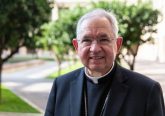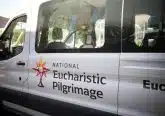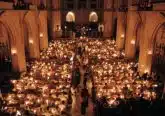LA archdiocese announces reopening plan
by Matt Hadro
Washington, D.C. Newsroom, May 27, 2020 / 10:35 am MT (CNA).- After California relaxed public health restrictions on churches on Monday, the nation’s largest diocese announced its plan on Tuesday to resume public Masses.
In a two-step plan for parishes to reopen and offer the sacraments, the Archdiocese of Los Angeles on Tuesday provided a checklist for each parish to observe. The state’s dioceses and archdioceses have all curtailed public Masses since March, but starting June 3 the archdiocese will allow for public Masses.
While Governor Gavin Newsom’s four-step reopening plan for the state had initially placed churches in stage 3 of reopening, that of “higher-risk workplaces,” on Monday the state announced that churches could begin reopening subject to county restrictions. The state is currently in stage 2 of Newsom’s reopening plan, where manufacturing and some retail businesses have been allowed to reopen.
Now, California has allowed churches to open at 25% capacity with a maximum of 100 people.
The state’s Catholic Conference called the new state guidelines “positive, constructive and fundamentally in alignment” with the diocesan reopening plans, and expressed gratitude for being “a part of the consultation.”
Individual dioceses and archdioceses would make the decisions on reopening parishes in consultation with local authorities, the conference said.
“We look forward to collaborating even further with Governor Newsom and our county leaders in the coming weeks to make social distancing the determining criterion for attendance for public worship so that our communities can undertake a pattern of worship that is both sustainable and safe,” their statement read.
For the Archdiocese of Los Angeles, “Step 1” of its reopening plan for parishes allows for silent adoration of the Blessed Sacrament and individual confessions heard upon request inside a church, with social distancing measures in place.
Churches must be deep cleaned before reopening and cleaned again after each use, and volunteers should be present to open the doors, keep count of the number of those inside the church, usher the faithful to designated seating, and help clean the church.
Parishes can “advance” to Step 2 of the archdiocese’s plan starting June 3, when public Masses, sacraments of initiation, scheduled confessions, and weddings, funerals and quinceañeras can resume. Choirs at Masses will be replaced by a cantor and accompanist, and Holy Communion can be received in the hand only.
For infant baptisms, “[t]he use of the Oil of Catechumens and the ‘Ephphatha’ rite are to be omitted,” the archdiocesan guidelines state.
While the state’s Catholic Conference offered a positive commendation of the state’s reopening plan, one Pentecostal church is still challenging the plan in court, saying it arbitrarily subjects churches to stricter limits than businesses are subject to.
The Thomas More Society, representing South Bay United Pentecostal Church in San Diego, sent a letter to Supreme Court Justice Elena Kagan on Tuesday stating that the state’s reopening plan was still unacceptable for churches.
Justice Kagan handles emergency requests from the jurisdiction of the U.S. Ninth Circuit Court of Appeals, according to SCOTUSBlog.com.
“It’s a step in the right direction, but it certainly doesn’t go far enough for the simple reason that they’re placing arbitrary and unconstitutional restrictions on churches that they’re not placing on secular organizations,” attorney Charles LiMandri told CNA on Wednesday.
South Bay church had already filed for an emergency injunction on the state’s order requiring churches to remain closed—Newsom’s original plan that placed churches in “stage 3” of the reopening. The church had asked for relief by Pentecost Sunday, May 31.
Then on Monday, May 25, the state’s health department announced that churches could resume religious services at a maximum of 25% capacity or 100 people.
The allowance is still not acceptable, the church argued in its letter to Kagan, as individual counties can still maintain stricter regulations than the state’s “ceiling” that was announced on Monday.
Furthermore, for larger churches such as South Bay which seats 600 congregants in its sanctuary, the 100-person limit is an “arbitrary cap,” the church argued.
“Some of these churches will seat over 1,000 people, so it makes no sense to have an arbitrary minimum cutoff” of 100 people, LiMandri said.
“They’re not doing that in any other organization or facility,” he added, noting that shopping malls are allowed to open at 50% capacity and warehouse stores like Costco do not have a customer limit.
The state’s allowance for churches is also legally suspect, the Thomas More Society argued, as it did not move churches to stage 2 of the original reopening plan “but has created an entirely new regime to regulate them alone.”
As various federal circuit courts have disagreed on the extent to which states may restrict religious practice during the pandemic, the Thomas More Society asked the Supreme Court to intervene and offer clarity.
“In light of these continued exigencies, it is imperative that states receive consistent and uniform guidance on this matter of utmost importance from Your Honor or the entire Court,” the letter stated.
“The deepening conflict between and among the various Circuit Courts of Appeal has triggered serious uncertainty as to what legal standard applies when citizens consider whether and under what circumstances they may freely exercise their religious faith by attending services at their church, temple, mosque or other place of worship.”
The U.S. Department of Justice warned California in a May 19 letter that it could not single out churches for burdensome restrictions during the pandemic.
“California has not shown why interactions in offices and studios of the entertainment industry, and in-person operations to facilitate nonessential e-commerce, are included on the list as being allowed with social distancing where telework is not practical, while gatherings with social distancing for purposes of religious worship are forbidden, regardless of whether remote worship is practical or not,” stated a letter by Eric S. Dreiband, head of the DOJ Civil Rights Division, joined by four U.S. attorneys for California.
That letter is one of several recent interventions by the DOJ, warning state and local authorities of the need to respect religious freedoms while making efforts to halt the spread of coronavirus.
On Monday, Nevada U.S. Attorney Nicholas A. Trutanich and U.S. Assistant Attorney General Eric S. Deibrand wrote to Governor Steve Sisolak regarding the standing prohibition on gathering of more than 10 people for religious purposes.
“We understand these directives were issued in the midst of an uncertain situation, which may have required quick decisions based on changing information,” the DOJ lawyers said.
“We are concerned, however, that the flat prohibition against ten or more persons gathering for in person worship services — regardless of whether they maintain social distancing guidelines — impermissibly treats religious and nonreligious organizations unequally.”
The letter asked Sisolak “to balance competing interests and make your best judgments” in drafting guidelines which accommodate both public health and religious freedom concerns.



